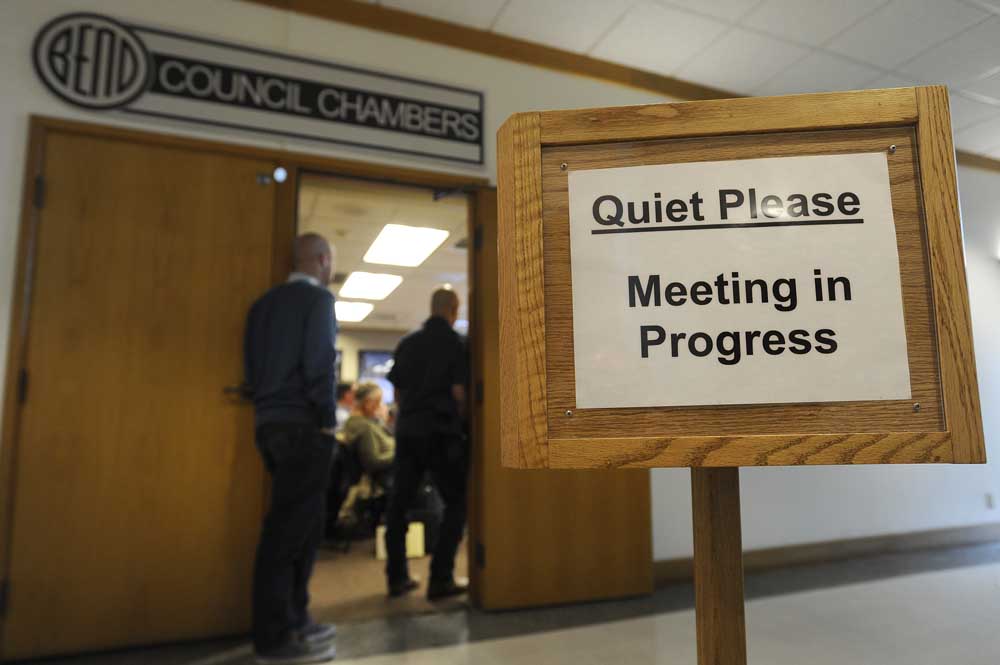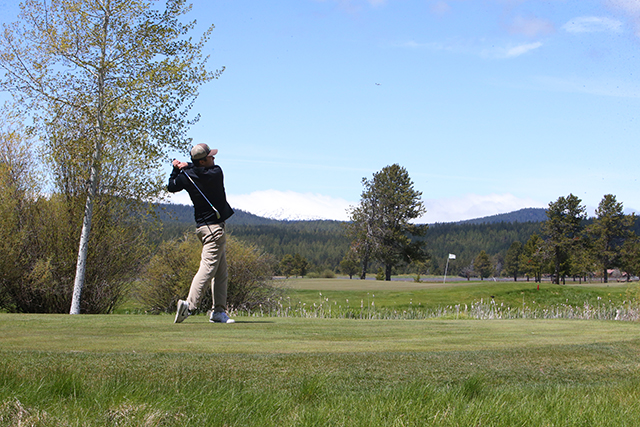Proposal to not enforce church capacity regulations fails at Bend City Council
Published 8:45 am Thursday, December 3, 2020

- A Bend City Council meeting takes place in 2018.
A motion to withhold city money and resources that enforce Gov. Kate Brown’s capacity regulations for churches was shot down by the Bend City Council.
At Wednesday’s council meeting, Councilors Justin Livingston and Bill Moseley introduced the motion, which states the city will not use any resources to enforce “pandemic health policies, which single out and discriminate against faith-based organizations or members thereof.”
Livingston said the resolution was inspired by a U.S. Supreme Court ruling made last week. The high court decided in a 5-4 vote that restrictions on churches put in place by New York Gov. Andrew Cuomo would violate religious freedom, and that “the regulations cannot be viewed as neutral because they single out houses of worship for especially harsh treatment,” according to the ruling.
Livingston said he believes religious institutions are also being regulated unfairly in Oregon. Currently, in Oregon counties deemed “extreme risk,” institutions like grocery stores can have 50% capacity, while churches can have 100 people or 25% capacity for indoor service.
“We are treating institutions of faith differently than retail, or indoor shopping malls,” Livingston said in an interview Tuesday. “We are treating them differently and I don’t think that’s appropriate.”
Moseley said he believes churches don’t have an issue following public health guidelines, but that the 100-person cap is unfair. He used his own church as an example: 25% of the congregation would mean more than 300 people spread out across a 40,000-square-foot building.
“We’re just being singled out because of our faith, and it’s not constitutional,” Moseley said in the meeting.
While the city can’t change these regulations, Livingston and Moseley wanted to be clear that they had no interest in having Bend Police or code enforcement officials enforce them.
But Mary Winters, the city’s attorney, said the motion was legally problematic. Winters said it is not the council’s place to decide what is constitutional and what is not, and that it is not within the council’s power to direct departments to not enforce certain laws it disagrees with.
“If you had a system where you don’t like the constitutionality of, I mean pick whatever law you want…and councils start to direct their enforcement and police departments to not enforce particular laws, that isn’t how separations of powers work,” Winters said.
Winters said Oregon’s regulations aren’t necessarily comparable to New York’s, given that they are less restrictive for churches. For example: concert venues and entertainment centers are restricted to 25% occupancy of 50 people, which is less than churches. Compare that to New York, which had a 10-person cap for churches, she said.
Moseley argued that the motion calls for the city to not support enforcement with funding, and that making decisions about how money is spent is at the heart of policymaking — which is all a council does.
Winters said that was a “backdoor way” to prevent a law from being enforced, and that the proper channel for this concern is through the courts.
Moseley also said the city chooses to not enforce immigration laws. Winters said the city’s welcoming city resolution just confirms the state’s existing sanctuary law, and is not the same as a council deciding to not follow a state law.
Mayor Sally Russell, who joined Councilors Bruce Abernethy, Chris Piper, Gena Goodman-Campbell and Barb Campbell to vote against the motion, said she feels it is irresponsible for the council to not follow state and federal rules.
“I would say that especially at this moment where our infection rates are the highest they’ve ever been…I would think in this moment we would want to be more careful and find ways to keep us from sharing this terrible virus with each other,” Russell said in the meeting.






